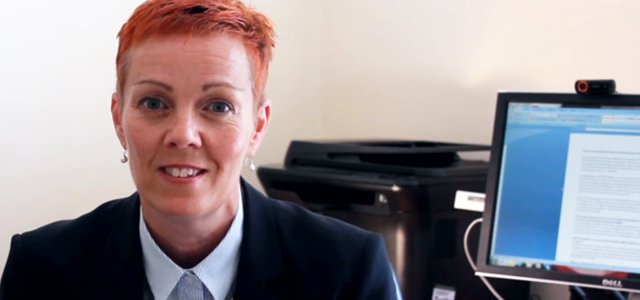
Unlike the proverbial frog in a pan of water, you know the heat is being turned up. You keep your head above the surface but your scalp tingles and the skin on the back of your neck feels too hot to touch. After years of gradual temperature rises there’s no getting away from the fact you’re almost at boiling point. You tell yourself you are okay, you just need to stay focused, you know what you’re doing.
Yet there’s another £15million in savings to find and more services to deliver with no additional resources. Generating income could turn the temperature down a notch or two, but that’s increasingly risky when you have to borrow big and markets are uncertain.
And you’re worried that it’s not just you in the hot water. There are your colleagues and your team to think about. The kids and your elderly mum. The neighbourhood isn’t what it was and the whole city could face municipal bankruptcy if you don’t balance the books. There’s no way you can bail out now – not while you can still make a difference.
Sound familiar? It’s just one of the many rich and varied stories that could be told about Section 151 officers. As a political thriller writer, former local authority policy director and writer in residence at CIPFA I know when I’m on fertile ground; that’s why I’ve put a council finance director at the heart of my new novel.
It may seem unusual but there are three good reasons why I know S151 officers make great characters. First is the inbuilt jeopardy in the role. Whether it’s publicly acknowledged or not, S151 officers are in high stakes situations. The numbers are big and the impact of the actions taken is universal. My character is swallowing hard as he tells truth to power – and hoping not to get punched in the process. He struggles to remain stoical when signing off on another round of redundancy letters, one that affects his own family directly. My tale is about what happens when good people are tested.
S151 officers make interesting characters because although we know they are there and that they are crucial (there are plenty of narratives about following the money) most of us still don’t really know what they do. They live in an obscure world bound by accounting regulations and treasury guidance which are often like shifting sands, open to interpretation and designed to drag down even the most skilful public servant. I’ve got to know many S151 officers who have access to knowledge most people will never have, and who can tell the kind of specialist stories that help explain the world. And they make entertaining guides to a strange land when their guards are down.
Listening to some of the commercial deals that S151 officers have pulled off, I’ve felt my own stomach lurch. In a novel you get to explore in more depth how a character deals with high levels of risk; stories about public finance are never just about the numbers. A long read helps us make sense of the world through the eyes of a character we don’t necessarily like but one that we can come to understand why they do what they do, warts and all. I’ve been keen to explore what’s at stake emotionally and how they respond or change as people.
S151 stories illustrate deeper aspects of the human condition. It’s not about city whizz kids making money, delivering public good is tough stuff. The issues are contested, differences in values, beliefs and ideologies are writ large. At the heart of the conflict are difficult decisions about what’s right and wrong in society, what sort of places we want to live in and how we afford it.
The recent debate about levels of public sector borrowing and the possibility of the next credit bubble is a classic example of this. Is this a sensible and long-term policy that generates income to re-invest in services or a foolhardy venture undertaken by people without the experience to make the big calls? You invest in an expensive asset for good reason but is it a time bomb waiting to go off? There are competing narratives at play here, alternative stories that end differently depending on who tells it and how. My novel unpicks why people tell the stories they do and lets the reader make up their own mind.
Which leads me to my final point. My work with CIPFA was about hearing the voices of S151 officers, supporting them to tell their own stories. I think we need more stories that put public finance experts in the spotlight in as many formats (novels, TV, opinion pieces and blogs) as possible. If we – and I include myself as someone who wants to challenge the stereotypical and negative narratives about councils – want to end forever the misconceptions about wide-scale corruption and incompetence that irritatingly persist, we need more stories about you and told by you.
Dawn Reeves is a trainer, facilitator and writer in residence at CIPFA. Her new novel – We know what we are – is to be published by Shared Press in October.












